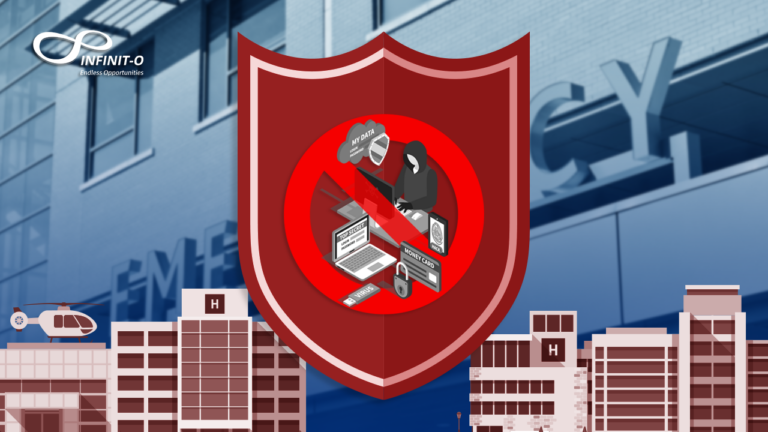Healthcare Outsourcing: Offshore or Nearshore?
The healthcare industry has experienced and enjoyed exponential growth in recent years, and, according to the US Bureau of Labor Statistics Report, healthcare will see the most growth over the next decade. But, alongside these opportunities are the growing challenges of keeping up with the demand for increased service quality, expansion of service scope, and serving more patients—all the while reducing costs. It comes as no surprise, therefore, that the market has increasingly turned to outsourcing in order to address these needs.
By outsourcing their back office or non-core activities, healthcare providers are better able to:
- Focus on providing quality patient care. Partnering with an outsourcing provider for non-core activities and tasks means a hospital or healthcare centre will be better able to focus on their main goal of delivering the best quality patient care as well as remain responsive to industry shifts.
- Greatly diminish if not eliminate critical mistakes. Outsourcing processes like billing or IT to a dedicated team of experts and proficient professionals means being able to avoid critical errors that could otherwise cost a lot of money.
- Benefit from experts and professionals without the costs of training. Organizations that choose to outsource need not worry about incurring additional expenses on seminars or training sessions. The right outsourcing partner takes care of all their staff’s education requirements and pre-training before deploying their personnel to your team.
- Enjoy cost savings and optimized operations. The healthcare industry is not alone in enjoying the cost-saving benefits of outsourcing. All industries that choose to outsource their operations to the right business partners have found that they were better able to reduce their operational expenses as they were able to optimize their day-to-day operations and focus on growing their main business.
Whereas before the healthcare industry only outsourced IT services and data entry operations such as medical billing and medical transcription, more and more organizations are now entrusting their healthcare application development, clinical services, case management, analytics reporting, claims processing, disease management and utilization management as well.
Onshore vs Offshore vs Nearshore
As in any business decision, one has to look at all the options available and make a decision based on what’s the best fit for your business. When it comes to outsourcing, one of the most important questions is whether you will outsource your services to a team that’s onshore, offshore or nearshore. First, we need to distinguish each from the other.
Onshore outsourcing means working with a provider that’s based in your home country. Its benefits include having physical access to a team of experts when you need them. Onshore outsourcing however comes with a pretty hefty price tag as compared with other two.
Offshore outsourcing refers to working with teams in far away locations, most often in completely different time zones. According to Forrester Research, choosing an offshore outsourcing provider can save companies 25% of the cost of outsourcing to a domestic provider.
The drawback however is working with a team located on the other side of the world can complicate communications or increase the back-and-forth communications which can affect your business’ time efficiency. However, many of these offshore providers augment this by having their team operate on your timezone. And, with the glut of video, voice and chat messaging programs, communications can be instantaneous.
Nearshore outsourcing is a relatively new buzzword in the industry but it merely means working with a team within or near your own timezone. It is technically a subset of offshore outsourcing but can be seen as another approach. Nearshore providers highlight their advantage as having the best of both worlds—organizations can work with teams on similar time zones. This approach can give you more savings compared to onshore but still falls short of the cost-savings when partnering with offshore providers.
Which approach is right for you?
Deciding whether to acquire nearshoring, offshoring, or onshoring services is not a one-size fits all deal. Instead, you need to ask the right questions about which operations you wish to outsource and take a broad view of your goals.
Offshore outsourcing is best for systems and tasks that do not require full real-time collaboration. Medical billing and coding, medical transcription, IT management and consulting, healthcare application development are good tasks to offshore. With the right partner you can get valuable services at a lower cost compared to onshore and nearshore providers.
Nearshore and onshore outsourcing are best for tasks that need constant real-time collaboration. Clinical services are best outsourced from nearby providers as these are more time-bound operations or activities that need physical collaboration. These services can include emergency department staffing, anesthesia, diagnostic services, dialysis services, and hospital staffing.
Half of the success in outsourcing your tasks requires partnering with the right provider. Infinit Healthcare’s team of professionals offers high-quality support with consistency and efficiency across many sectors; from medical billing and medical coding to customer/patient services and other back office tasks. Contact Infinit Healthcare today and learn more about the advantages of healthcare outsourcing here.
Infinit-O is the trusted customer-centric and sustainable leader in Business Process Optimization to Small and Medium businesses in the Financial Services, Healthcare and Technology sectors by delivering continuous improvement through technology, data and people.







This site is protected by reCAPTCHA and the Google Privacy Policy and Terms of Service apply.